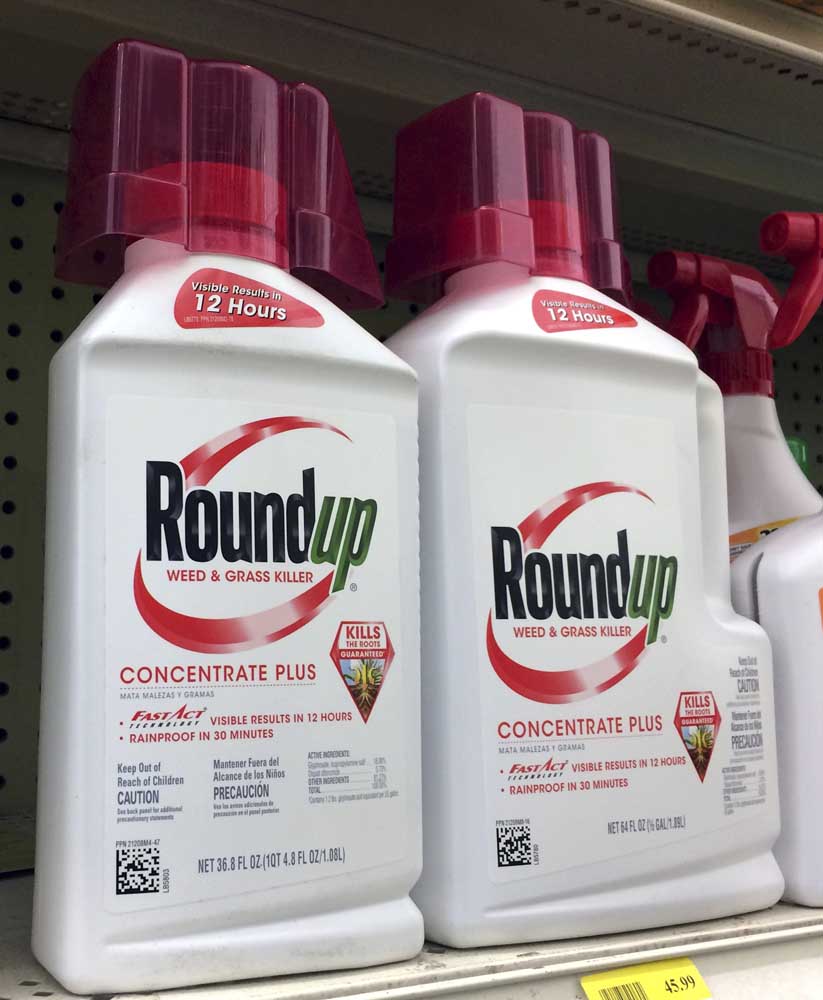Federal law doesn’t pre-empt $25 million glyphosate verdict, 9th Circuit rules
Published 1:00 pm Friday, May 14, 2021

- Monsanto's Roundup herbicides
Federal law does not pre-empt legal claims that glyphosate herbicides cause cancer, the 9th U.S. Circuit Court of Appeals has ruled in upholding a $25 million judgment against Monsanto.
A jury determined in 2019 that exposure to glyphosate in Roundup products had caused plaintiff Edwin Hardeman’s non-Hodgkin’s lymphoma, awarding him $80 million in damages.
That amount was knocked down to $25 million by a federal judge, who decided the original amount was unconstitutionally excessive.
Monsanto — a major seed and chemical producer that has since merged with Bayer — challenged the verdict before the 9th Circuit, arguing that Hardeman’s claims shouldn’t have even reached the jury.
The Federal Insecticide, Fungicide and Rodenticide Act pre-empted the lawsuit because the U.S. Environmental Protection Agency determined that glyphosate doesn’t require a cancer risk label, according to Monsanto.
The allegation that Monsanto was liable for a “failure to warn” about cancer risks under California law must fail because that state imposes labeling requirements that are different from FIFRA, the company said.
However, the 9th Circuit has now rejected that interpretation, ruling that California law doesn’t conflict with FIFRA in regard to warning labels.
“We conclude that Hardeman’s failure-to-warn claims based on Roundup’s labeling are consistent with FIFRA and thus are neither expressly nor impliedly pre-empted,” the 9th Circuit said.
The EPA’s approval of Monsanto’s label for glyphosate doesn’t necessarily prove the company complied with FIFRA — it’s merely a “rebuttable presumption” that can still be overruled by a judge or jury, the 9th Circuit said.
Likewise, it would not have been impossible for Monsanto to warn of glyphosate’s cancer risk under FIFRA’s labeling rules, the ruling said. “Because Monsanto could comply with both FIFRA and California law, FIFRA did not impliedly pre-empt Hardeman’s state failure-to-warn claims.”
The 9th Circuit’s ruling contradicts the legal position of the EPA, which argued the pesticide registration process pre-empts lawsuits against products whose labels have been approved by the agency.
The pesticide industry, represented by Croplife America, claimed the judgment against Monsanto sets a dangerous precedent “well beyond Roundup and glyphosate.”
“The district court’s decisions under review raise the fundamental question of whether specific pesticide labeling requirements imposed by EPA in the exercise of expert scientific judgments under FIFRA can be overridden by the verdicts of lay juries under state law across a wide array of regulated pesticides,” the organization argued.
Aside from the question of federal pre-emption, the 9th Circuit ruled that expert testimony regarding the link between glyphosate and cancer was properly admitted in the lawsuit.
The original punitive damages awarded by the jury were “grossly excessive,” but the reduced amount didn’t violate Monsanto’s due process rights, the ruling said.
“Ultimately, evidence of Monsanto’s conduct — downplaying concerns and failing to fully assess Roundup’s safety after being alerted to possible risks — supports that Monsanto acted with ‘indifference to or a reckless disregard of the health or safety of others,’” the 9th Circuit said, citing case law.




